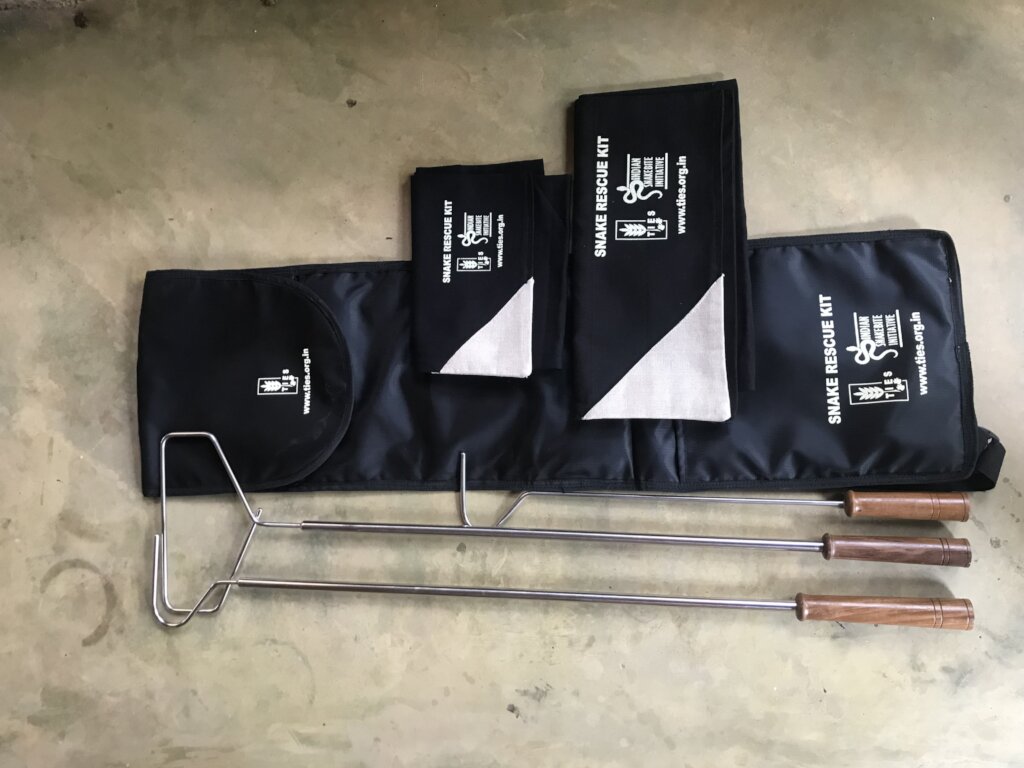

The Indian Chapter of Global Snakebite Initiative, Indian Snakebite Initiative is managed by a nationwide network of organizations, experts, and institutions with a common aim to reduce snakebite mortality by 50% across India by 2030. We support the mission of the World Health Organization in this regard and have aligned our activities and projects towards achieving this goal. The initiative is led by a group of experts and supported by an expert panel of advisors and organizational partners across the country. Our key strength is the regional volunteer network which spans the country, reaching deep into rural areas where snakebite is a major issue. Vision Quick and effective snakebite envenomation treatments are available to everyone across India. Mission 2030 To reduce the snakebite envenomation deaths by 50% Snakebite in India Snakebite claims more than 45000 lives a year across India and this has earned the country the tag of ‘snakebite capital’ across the globe. Most victims are from the poor and marginalized communities that live in rural areas. Even today, some years after the announcement of the Million Death Study, the response on the ground aimed to minimize deaths caused by snakebite is not good enough to save lives efficiently and effectively. In many parts of India, people still die of snakebites because of improper and inadequate treatment. Today, the situation is changing because of increased awareness and more people are coming to hospitals. While this is good news, this does pose challenges because in most parts of the country (especially in rural areas where maximum bites occur), medical facilities lack the basic training and equipment to effectively treat snakebites. The Indian Snakebite Initiative is addressing gaps in the system through its activities listed below. A Vial of Life - Saving one life at a time Many rural hospitals lack enough anti-venom stock and trained medical professionals to treat snakebites in India. India tops the list of countries with a maximum number of snakebite deaths per year and, paradoxically, India is the largest producer of anti-venom in the world! Indiansnakes.org & TIES initiated the “A Vial of Life “ program in a very small way by supporting not-for-profit hospitals with anti-venom supplies. The initiative began with one hospital in Pithora, Chhattisgarh, and has since expanded to one more hospital in The Dangs District of Gujarat in 2019. The project is simple - identify a hospital that is non-profit in nature and treats people at very low cost, arrange for the doctor to undergo snakebite treatment training (If necessary), and then support the hospital with adequate stocks of anti-venom to treat the patients. Our first experiment with the hospital in Pithora has been a rewarding and encouraging experience. We managed to provide anti-venom to the hospital and to date more than 150 people have received free anti-venom at the hospital. The hospital does not charge the patients for other treatment costs if they are not able to pay. We are keen to expand “A Vial of Life” to other hospitals across the country. We are looking for hospital partners who provide free or low-cost treatment to patients in the rural areas that we can support with adequate ASV stocks. We are also looking for philanthropic agencies who would like to support ASV stocks for such hospitals under this project. Awareness and Outreach One major hurdle is to get the patient to the hospital for treatment quickly as very often, a snakebite victim is taken to the nearest faith healer who performs rituals and chants to save the victim. This only works if envenomation has not occurred (nonvenomous snakebite or dry bite) which is the case in 95% of the bites. The ISBI is conducting extensive awareness workshops in rural areas across India, especially during the monsoons when snakebite incidence is highest. These workshops disseminate information on simple do’s and don’t’s to prevent snakebite and effective first aid measures in the event of a bite. The workshops also help the people distinguish between venomous and nonvenomous snakes and also inform them about snake rescuers close to them who can help defuse a potentially dangerous human-snake conflict situation. Big4 Mapping: Technology-Enabled Live Mapping of Venomous Snakes The Big-4 mapping (visit http://snakebiteinitiative.in for more information) is a national level distribution and conflict report mapping of four medically important snakes of India which causes more than 95% of snakebite deaths. The mapping has been done by more than 800 volunteers using the Big-4 Mapper mobile app across the country. The project started in May 2017 under MCBT’s guidance. This mapping was the first-ever extensive mapping of medically important snakes in India. The Android app, designed within three months, enables users to report the occurrence of any of the Big-4 venomous snakes with just a few clicks. The app collected the picture, GPS location, date & time with an option for the user to select the type of encounter and add notes if required. Considering the resources and user preference, only the Android version was produced. The app was tested and made available for downloads in May 2017.
Tropical Institute of Ecological Sciences (TIES), in collaboration with the Kerala Forest and Wildlife Department, has been distributing specialized snake rescue kits to four trained and certified rescuers from the Kerala State Forest Department. The professional rescue kits include a carry case, large and small hooks, cotton bags, and a bagger frame. These kits were thoughtfully designed by experienced rescuers from Indiansnakes, tailored to meet the field conditions and requirements of snake rescuers across India.
Snake Rescue Kit to Certified Snake Rescuers